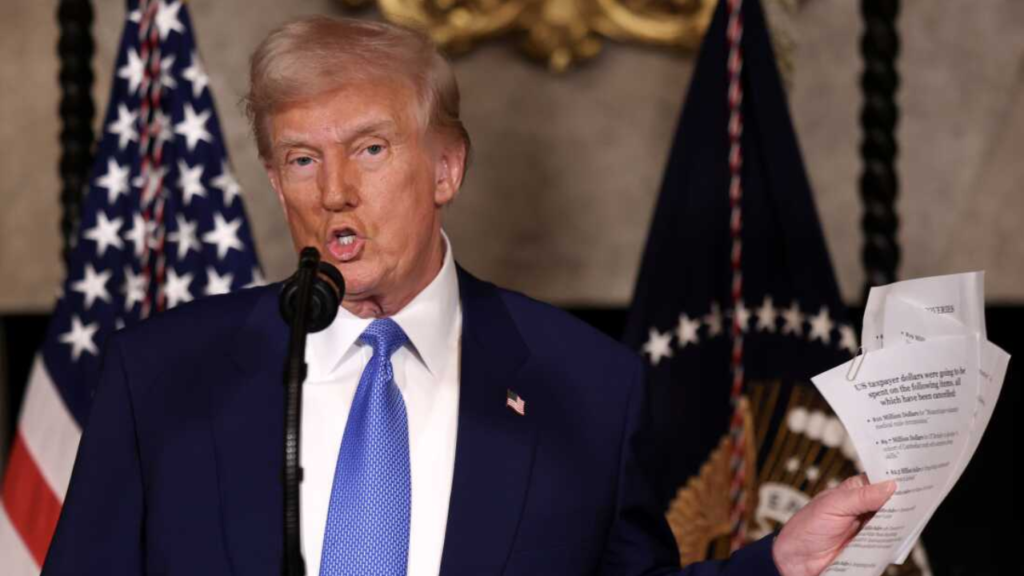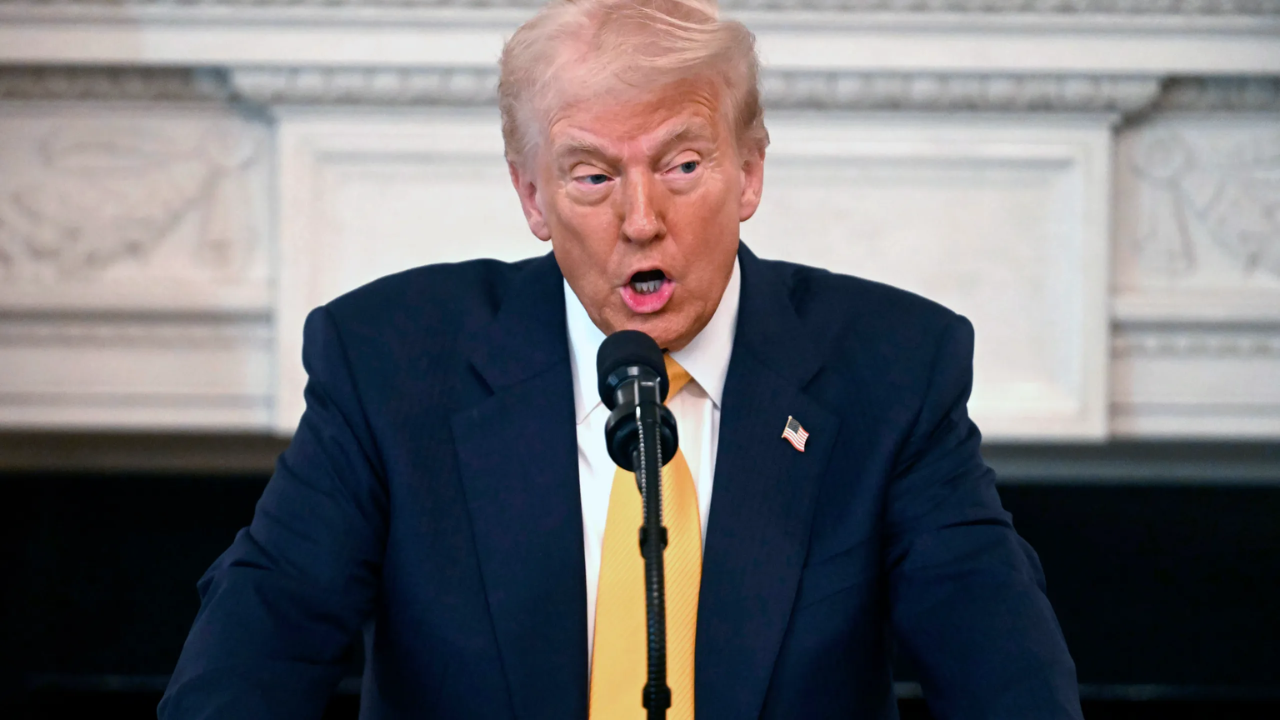In a significant blow to the Trump administration’s Department of Justice (DOJ), a federal court has officially rejected a motion that would have allowed the government to detain a foreign national, Salvadoran Kilmar Abrego Garcia, without due process.
The Department of Justice recently filed an emergency motion in the Fourth Circuit, requesting the court to block a district court ruling that mandated the Trump administration help return Abrego Garcia to the United States from his current detention in El Salvador.
However, Judge J. Harvie Wilkinson and a panel from the Fourth Circuit refused to grant the DOJ’s request, ruling that the government could not hold foreign nationals in overseas prisons without following due process under U.S. law.
Background on the Case
Kilmar Abrego Garcia, a Salvadoran national, has been the subject of significant legal disputes between the Trump administration and the legal system.
The government claims that Abrego Garcia is a member of the notorious MS-13 gang and a terrorist, which is why he is being detained in El Salvador.
However, the U.S. legal system insists that all individuals, regardless of nationality or alleged criminal activity, are entitled to due process, which includes the right to a fair and proper trial.
This case centers around whether the Trump administration has the authority to deport individuals from foreign countries without following the procedures required under U.S. law, particularly in cases where the individuals have not been allowed to challenge their detention or return.
The ruling from the Fourth Circuit, which rejected the DOJ’s motion, reaffirmed the importance of upholding due process, even in cases involving individuals who are accused of being involved in criminal activities or terrorist organizations.
DOJ’s Legal Argument
The DOJ’s emergency motion argued that the government should not be required to abide by the district court’s order. According to the motion, Abrego Garcia’s detention in El Salvador should be justified due to his alleged membership in MS-13, a violent gang known for its criminal activities.
The government also claimed that Abrego Garcia posed a threat to national security and that his detention in El Salvador was appropriate for safeguarding U.S. interests.
Attorney General Pam Bondi, who has been vocal in support of the administration’s aggressive immigration policies, spoke out strongly on the matter.
She described Abrego Garcia as an “illegal alien” who had been living unlawfully in the United States and emphasized that the actions against him had been validated by multiple judicial bodies, including an immigration judge and an appellate judge.
Bondi’s remarks echoed the Trump administration’s hardline stance on immigration and criminal justice, portraying Abrego Garcia as a dangerous individual whose presence in the U.S. would be unacceptable.
However, the Fourth Circuit ruling went against the government’s position, holding that despite the allegations against Abrego Garcia, he still had the right to due process.
The court emphasized that even individuals who are accused of being involved in criminal activity cannot be stripped of their legal rights under U.S. law, including the right to contest their detention and the right to a fair process.
The Role of the Supreme Court

The legal battle escalated to the point where the U.S. Supreme Court’s involvement became necessary. The court ruled that the Trump administration must facilitate Abrego Garcia’s release from his current detention in El Salvador and must properly manage his case per U.S. laws governing immigration and deportation.
This decision significantly weakened the DOJ’s argument, as it highlighted that the legal and constitutional requirements for due process apply not only to those residing within the U.S. but also to foreign nationals who are impacted by U.S. policies.
Despite the rejection from the Fourth Circuit, the Trump administration has maintained that it has the authority to oversee foreign relations and handle the deportation of foreign nationals, including those accused of being associated with dangerous criminal organizations.
Yet, the court’s ruling suggests that there are boundaries to executive power, especially when it comes to fundamental constitutional rights like due process.
Concerns Over Executive Power and Due Process
The case raises important questions about the limits of executive power and the potential for abuses of authority, particularly in the context of immigration enforcement.
Critics argue that giving the executive branch the unchecked power to detain and deport individuals without due process could lead to a dangerous precedent, one that undermines the constitutional safeguards designed to protect individuals’ rights.
While the executive branch has significant authority over prosecutorial decisions, including deportation and immigration enforcement, those powers are not absolute.
Legal experts have raised concerns that allowing the government to deport individuals without ensuring their right to contest their detention could result in a violation of U.S. law.
In this case, the district court ruled that the Trump administration could not bypass the judicial process by ordering the removal of Abrego Garcia from El Salvador without ensuring that he had been given the opportunity for a fair hearing.
Additionally, the court’s decision highlights the tension between the U.S. government’s efforts to combat terrorism and criminal organizations and the need to preserve the fundamental rights of individuals, even when they are accused of serious crimes.
The balance between national security and individual rights remains a complex and contentious issue in U.S. politics, especially under the Trump administration, which has often prioritized strong immigration policies.
Political Reactions and Future Implications
The ruling has sparked political debate, with supporters of the Trump administration criticizing the court’s decision as a roadblock to effective law enforcement.
They argue that the decision undermines efforts to remove dangerous individuals from U.S. soil and protects criminals at the expense of public safety.
On the other hand, proponents of due process and constitutional rights have lauded the Fourth Circuit’s decision as a victory for the rule of law.
They argue that the ruling reinforces the principle that no one, regardless of their immigration status or criminal background, should be denied their basic legal rights.
The ruling also serves as a reminder of the checks and balances in the U.S. government, where the judicial branch has the power to limit the executive’s actions when they violate constitutional principles.
Conclusion
The federal court’s rejection of the Trump administration’s motion represents a significant legal setback for the DOJ in its efforts to circumvent due process in the deportation of foreign nationals.
The case underscores the importance of upholding constitutional rights, even in cases involving individuals accused of being involved in terrorism or criminal activity.
As the legal battle continues, it remains to be seen how the administration will navigate the complex intersection of immigration enforcement, national security, and due process.
Disclaimer- Our team has thoroughly fact-checked this article to ensure its accuracy and maintain its credibility. We are committed to providing honest and reliable content for our readers.






